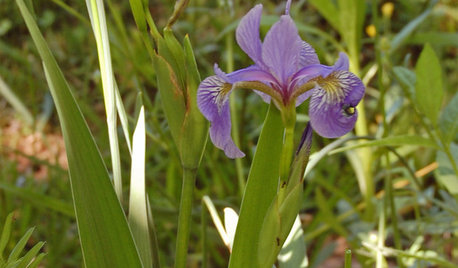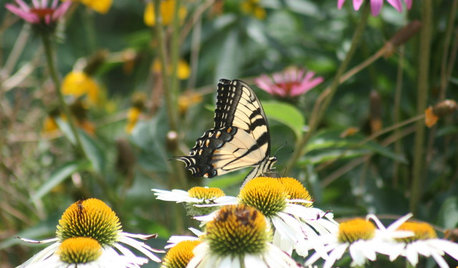iris
ianna
10 years ago
Related Stories

GARDENING GUIDESGreat Design Plant: Iris Versicolor
A versatile native iris for bridging wet and dry gardens
Full Story
FLOWERSPaint a Garden Delightful With Iris
Charming and colorful, irises propagate easily, are hardy in many soils and climates, and unfold with layers of beauty
Full Story
GARDENING AND LANDSCAPINGGreat Design Plant: Pacific Coast Iris
Plant this West Coast native for stunning, intricate blooms from January through May
Full Story
HOUZZ TOURSHouzz Tour: Joyous and Cozy Netherlands Nest
A mix of flea market finds and original art creates an airy and romantic home in the Netherlands
Full Story
HOUZZ TOURSMy Houzz: Entertaining Possibilities in the Hamptons
From intimate dinner parties to large gatherings outdoors, this gracious home handles get-togethers with beachy elegance
Full Story
GARDENING GUIDESLessons in the Rewards of Selfless Gardening
Let go of gardening for your own vision and watch the garden’s own true vision come forth
Full Story
PLANTING IDEASA Great Spring Plant Combo for Dappled Shade
Time these ephemeral beauties right to watch them play off one another under a canopy of deciduous trees
Full Story
GARDENING GUIDESSouthern California Gardener's September Checklist
Before prime planting time, clean out the old garden, prepare for the new, and dream up ideas for fall flowers and veggies
Full Story0

MY HOUZZMy Houzz: With TLC, a Former Dutch Nursery Estate Blossoms
A family buys a run-down estate in the Netherlands and brings it back to life
Full Story
GARDENING AND LANDSCAPINGFocus Your Garden Palette
Restrict your garden's color scheme to create maximum impact in landscape beds and borders
Full StorySponsored






luckygal
trovesoftrilliums
Related Professionals
Aberdeen Landscape Contractors · Caldwell Landscape Contractors · Holland Landscape Contractors · South Hackensack Landscape Contractors · Eastlake Landscape Contractors · Grand Rapids Roofing & Gutters · Omaha Roofing & Gutters · Syracuse Roofing & Gutters · Manteca Roofing & Gutters · Augusta Siding & Exteriors · Bolingbrook Siding & Exteriors · Broomfield Siding & Exteriors · Ft Washington Siding & Exteriors · Overland Park Siding & Exteriors · Wilmington Siding & ExteriorsiannaOriginal Author
agardenstateof_mind